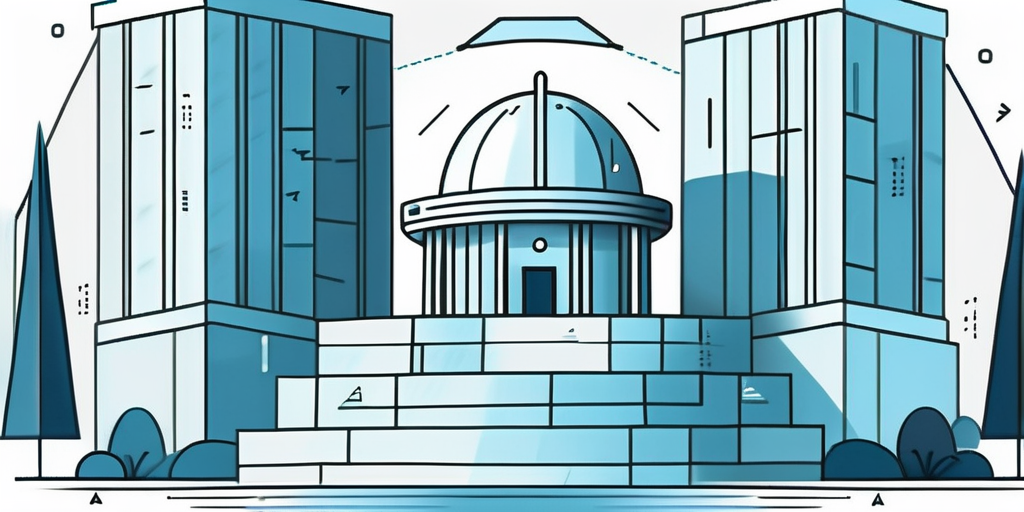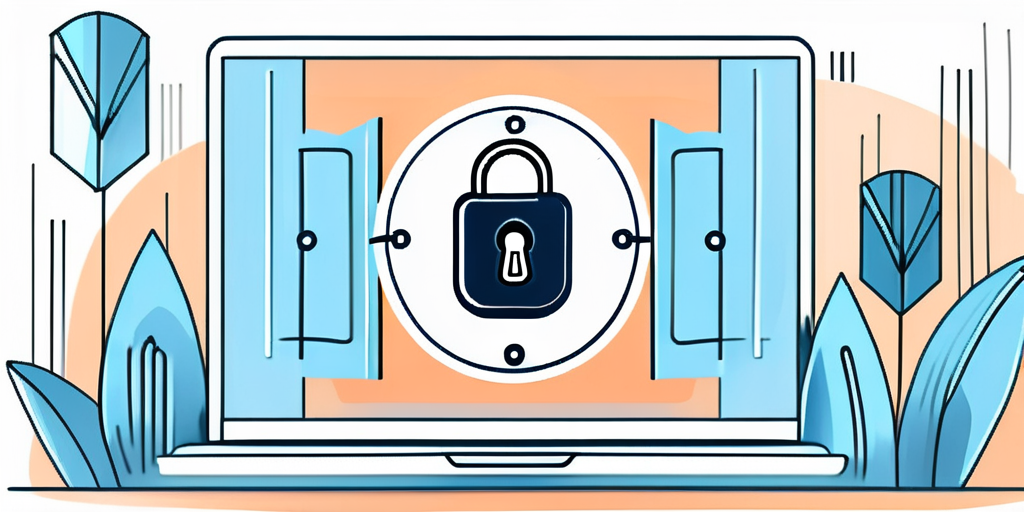Updated April 26, 2025
Cybersecurity is a critical concern in our increasingly connected world. With businesses and individuals relying heavily on technology and digital platforms, protecting sensitive information from unauthorized access, breaches, and malicious activities has become essential. One of the fundamental concepts in cybersecurity is the CIA Triad. In this article, we will delve into the various components of the CIA Triad and their significance in maintaining the security and integrity of data.
Understanding the CIA Triad
The CIA Triad framework embodies the three core principles of cybersecurity: Confidentiality, Integrity, and Availability. These principles are the foundation for designing a robust security strategy to safeguard data against threats and vulnerabilities. Let’s explore each component in detail:
Defining Confidentiality, Integrity, and Availability
Confidentiality protects sensitive data and ensures it is only accessible to authorized individuals or entities. It involves implementing strong access controls, encryption, and data classification to prevent unauthorized disclosure.
For example, a healthcare organization considers patient medical records highly confidential. The organization may implement strict access controls to maintain confidentiality, allowing only authorized healthcare professionals to access the records. Additionally, they may encrypt the data to protect it from being intercepted or accessed by unauthorized individuals.
Conversely, integrity focuses on maintaining data’s accuracy, consistency, and trustworthiness throughout its lifecycle. Data integrity measures ensure that information remains unchanged and uncorrupted, whether at rest or in transit.
Continuing with the healthcare example, data integrity measures would ensure that patient records are not tampered with or modified without proper authorization. This could involve implementing checksums or digital signatures to verify the integrity of the data. Additionally, organizations may use secure transmission protocols, such as HTTPS, to protect data integrity during transit.
Lastly, availability emphasizes the need to ensure that data and services are readily available to authorized users whenever they need them. This involves implementing robust infrastructure, redundancy measures, and disaster recovery plans to minimize downtime and guarantee continuous access to critical resources.
For instance, a financial institution must ensure that its online banking services are available 24/7 to customers. To achieve this, they may employ redundant servers, backup power supplies, and disaster recovery sites. These measures help minimize the impact of potential disruptions, such as power outages or hardware failures, ensuring that customers can access their accounts and perform transactions without interruption.
The Importance of the CIA Triad in Cybersecurity
The CIA Triad is a guiding principle for organizations seeking a comprehensive cybersecurity strategy. By effectively applying the principles of confidentiality, integrity, and availability, businesses can mitigate the risks associated with cyber threats and enhance their overall security posture.
Without a strong focus on confidentiality, organizations risk exposing sensitive information to unauthorized individuals, leading to potential data breaches and privacy violations. Similarly, neglecting data integrity measures can result in compromised data, loss of trust, and inaccurate decision-making.
Overlooking availability can lead to significant disruptions in business operations, revenue loss, and damage to the organization’s reputation. By prioritizing availability, organizations can ensure continuous access to critical resources, minimizing the impact of potential cyber incidents.
Delving into Confidentiality
Confidentiality is vital in protecting sensitive information from falling into the wrong hands. Maintaining confidentiality is crucial in today’s digital landscape, where data breaches are increasingly common. Let’s explore the significance of confidentiality in cybersecurity:

Confidentiality is not just a buzzword; it forms the bedrock of data protection and privacy. Organizations can prevent data leaks, unauthorized disclosures, and potential legal repercussions by ensuring that only authorized individuals can access sensitive information. This aspect of cybersecurity instills confidence in customers, partners, and stakeholders, who know their data is safeguarded.
However, maintaining confidentiality is not without its challenges. Cybercriminals constantly evolve tactics to bypass security measures and gain unauthorized access to confidential data. Organizations must stay vigilant and employ various techniques to ensure the highest level of confidentiality.
Role of Confidentiality in Cybersecurity
Confidentiality, integrity, and availability are among the three pillars of information security. It protects data from unauthorized disclosure, ensuring only authorized individuals can access and view sensitive information. Organizations can mitigate the risks associated with data breaches, intellectual property theft, and privacy violations by maintaining confidentiality.
Confidentiality is crucial in industries that handle highly sensitive data, such as healthcare, finance, and government sectors. Unauthorized access to confidential information can have severe consequences, including financial loss, reputational damage, and compromised national security.
Confidentiality is not limited to external threats. Internal threats, such as insider attacks or accidental data leaks, can also pose significant risks to an organization’s confidentiality. Therefore, robust security measures and access controls are essential to protect against external and internal threats.
Techniques to Ensure Confidentiality
Several techniques can help organizations maintain confidentiality effectively. Firstly, access controls ensure that only authorized individuals can access sensitive information. Strong authentication mechanisms, such as multi-factor authentication and biometric authentication, add an extra layer of security by requiring multiple factors to verify a user’s identity. Role-based permissions further enhance confidentiality by granting access rights based on job roles and responsibilities.
Encryption is another key technique that transforms data into an unreadable format unless decrypted with the appropriate key. By encrypting sensitive information, even if it falls into the wrong hands, it remains unintelligible and useless without the decryption key. Encryption algorithms, such as Advanced Encryption Standard (AES), provide a strong level of confidentiality when implemented correctly.
Data classification is also critical for maintaining confidentiality. Organizations can prioritize security measures by categorizing data based on sensitivity and value. For example, highly sensitive data may require additional layers of encryption and access restrictions, while less sensitive data may have fewer security controls. Data classification helps organizations allocate resources effectively and ensure that the most critical information receives the highest level of protection.
Regular security audits and vulnerability assessments are essential to identify potential weaknesses in an organization’s confidentiality measures. By proactively identifying vulnerabilities, organizations can take necessary actions to strengthen their security posture and maintain confidentiality.
Unpacking Integrity
Data integrity ensures the trustworthiness and reliability of information throughout its lifecycle. Let’s explore why data integrity is crucial in cybersecurity:
Data integrity is not just a buzzword in cybersecurity but a fundamental pillar that upholds the entire system. When discussing data integrity, we refer to the accuracy, completeness, and unaltered state of information. It assures that the data remains intact and uncorrupted, free from any unauthorized modifications or tampering.
Imagine a scenario where a financial institution’s database and data integrity are compromised. The consequences could be catastrophic. Incorrect balances, altered transaction records, and manipulated customer information could lead to chaos and financial loss. Maintaining data integrity is vital for businesses to make informed decisions based on reliable information.
But why is data integrity so significant? It is the bedrock upon which organizations build their trust and credibility. When stakeholders, customers, and partners rely on an organization’s information, they expect it to be accurate and trustworthy. Any compromise in data integrity can lead to faulty analysis, incorrect conclusions, and severe consequences for organizations.
The Significance of Data Integrity
Data integrity ensures that information remains accurate, complete, and unaltered. It goes beyond just protecting the data from external threats; it also safeguards against internal errors and system malfunctions. By maintaining data integrity, organizations can have confidence in the integrity of their decision-making processes, enabling them to operate efficiently and effectively.
Data integrity plays a critical role in regulatory compliance. Many industries, like healthcare and finance, have strict regulations to protect sensitive information. Ensuring data integrity is a matter of good practice and a legal requirement. Failure to comply with these regulations can result in hefty fines, legal consequences, and reputational damage.
Measures to Maintain Integrity
Integrity can be maintained through various means. Implementing controls such as data validation and checksums helps detect unauthorized changes or corruption. Data validation involves verifying the accuracy and consistency of data, ensuring that it meets predefined rules and standards. Checksums, on the other hand, are mathematical algorithms that generate unique values for data sets. Organizations can detect any alterations or corruption by comparing checksums before and after data transmission or storage.
Regular backups and redundancy measures can also restore data integrity in case of data loss or unauthorized modifications. Backups serve as a safety net, allowing organizations to revert to a previous state before any integrity breaches occur. Redundancy measures, such as mirroring or replication, ensure that multiple copies of data are available, minimizing the impact of data corruption or loss.
Organizations can employ cryptographic techniques to protect data integrity. Encryption algorithms can secure data during transmission and storage, making it extremely difficult for unauthorized individuals to modify or tamper with the information. Digital signatures, another cryptographic tool, can provide a means of verifying the authenticity and integrity of data, ensuring that it has not been altered since it was signed.
Availability in Focus
Data availability ensures uninterrupted access to information and services. Let’s explore why data availability is crucial in cybersecurity:

The Necessity of Data Availability
In today’s fast-paced digital landscape, downtime can severely affect organizations. Ensuring data availability is essential to meet customer expectations, maintain operational efficiency, and prevent financial losses. Without data availability, businesses may fail to provide critical services, leading to reputational damage and loss of customer trust.
Strategies to Guarantee Availability
Organizations should invest in robust infrastructure, including redundant systems, backups, and failover mechanisms, to ensure data availability. Implementing disaster recovery plans and regularly testing them can help minimize downtime and ensure business continuity. Effective monitoring and incident response mechanisms can swiftly identify and address data availability issues.
Balancing the Three Elements of the CIA Triad
While each element of the CIA Triad is essential, maintaining a balance is crucial for an effective cybersecurity strategy. Let’s explore the challenges associated with balancing confidentiality, integrity, and availability:
Challenges in Balancing Confidentiality, Integrity, and Availability
Striking the right balance among the CIA Triad elements can be challenging. Strong security measures to enhance confidentiality may affect data availability, while robust availability measures can compromise confidentiality. Finding the optimal balance requires thoroughly understanding the organization’s unique requirements and risk appetite.
Solutions for Effective Triad Management
Employing a risk-based approach and conducting thorough assessments can help organizations identify potential vulnerabilities and implement appropriate controls. Regular audits, penetration tests, and vulnerability assessments can provide insights into areas that require improvement. Training and awareness programs should also be conducted to ensure that employees understand the significance of the CIA Triad and their roles in maintaining a secure environment.
Conclusion
The CIA Triad serves as a fundamental framework in cybersecurity, providing organizations with a holistic approach to protecting their valuable assets. Understanding and effectively implementing the principles of confidentiality, integrity, and availability can go a long way in mitigating risks, enhancing security, and fostering trust among stakeholders. By striking the right balance among these elements, organizations can navigate the ever-evolving cybersecurity landscape with confidence and resilience.
As you’ve learned, the CIA Triad is essential in fortifying your organization’s cybersecurity posture. At Blue Goat Cyber, we understand your unique challenges, especially in medical device cybersecurity and compliance with HIPAA, FDA, SOC 2, and PCI standards. Our veteran-owned business is dedicated to securing your operations against cyber threats with expert penetration testing and tailored cybersecurity solutions.
Contact us today for cybersecurity help, and let us help you achieve the balance and protection your business deserves.
CIA Triad FAQs
The CIA Triad refers to the three foundational principles of information security: Confidentiality, Integrity, and Availability. It serves as the core framework for protecting sensitive information and ensuring the reliability of systems.
Confidentiality ensures that sensitive information is accessible only to authorized individuals. It protects data from unauthorized access or disclosure, safeguarding patient records, intellectual property, and personal information.
Confidentiality ensures that sensitive information is accessible only to authorized individuals. It protects data from unauthorized access or disclosure, safeguarding patient records, intellectual property, and personal information.
Integrity means maintaining the accuracy, consistency, and trustworthiness of data throughout its lifecycle. It ensures that information is not altered, deleted, or tampered with—either maliciously or accidentally—without detection.
Availability ensures that information and critical systems are accessible when needed by authorized users. It involves protecting against disruptions like cyberattacks, hardware failures, or natural disasters that could prevent timely access.
Medical devices handle life-critical functions and sensitive health data. Applying the CIA Triad principles ensures devices are secure, patient data is protected, operations are reliable, and regulatory requirements (like FDA and HIPAA) are met.
Confidentiality breach: A hacker accesses unencrypted patient data.
Integrity breach: Malware modifies device calibration data, leading to faulty readings.
Availability breach: A ransomware attack locks healthcare systems, delaying patient care.
Common strategies include:
Strong encryption (at rest and in transit)
Multi-factor authentication
Strict access controls and user privilege management
Regular security audits and monitoring
Organizations maintain integrity by:
Implementing hashing and digital signatures
Using version control and audit logs
Conducting regular data validation and backups
Monitoring for unauthorized changes
Best practices include:
Redundancy and failover mechanisms
Regular system maintenance and patching
DDoS protection measures
Comprehensive disaster recovery and business continuity planning
The CIA Triad provides a framework for identifying and prioritizing risks. By evaluating threats to confidentiality, integrity, and availability, organizations can design layered defenses and allocate resources effectively to protect what matters most.
